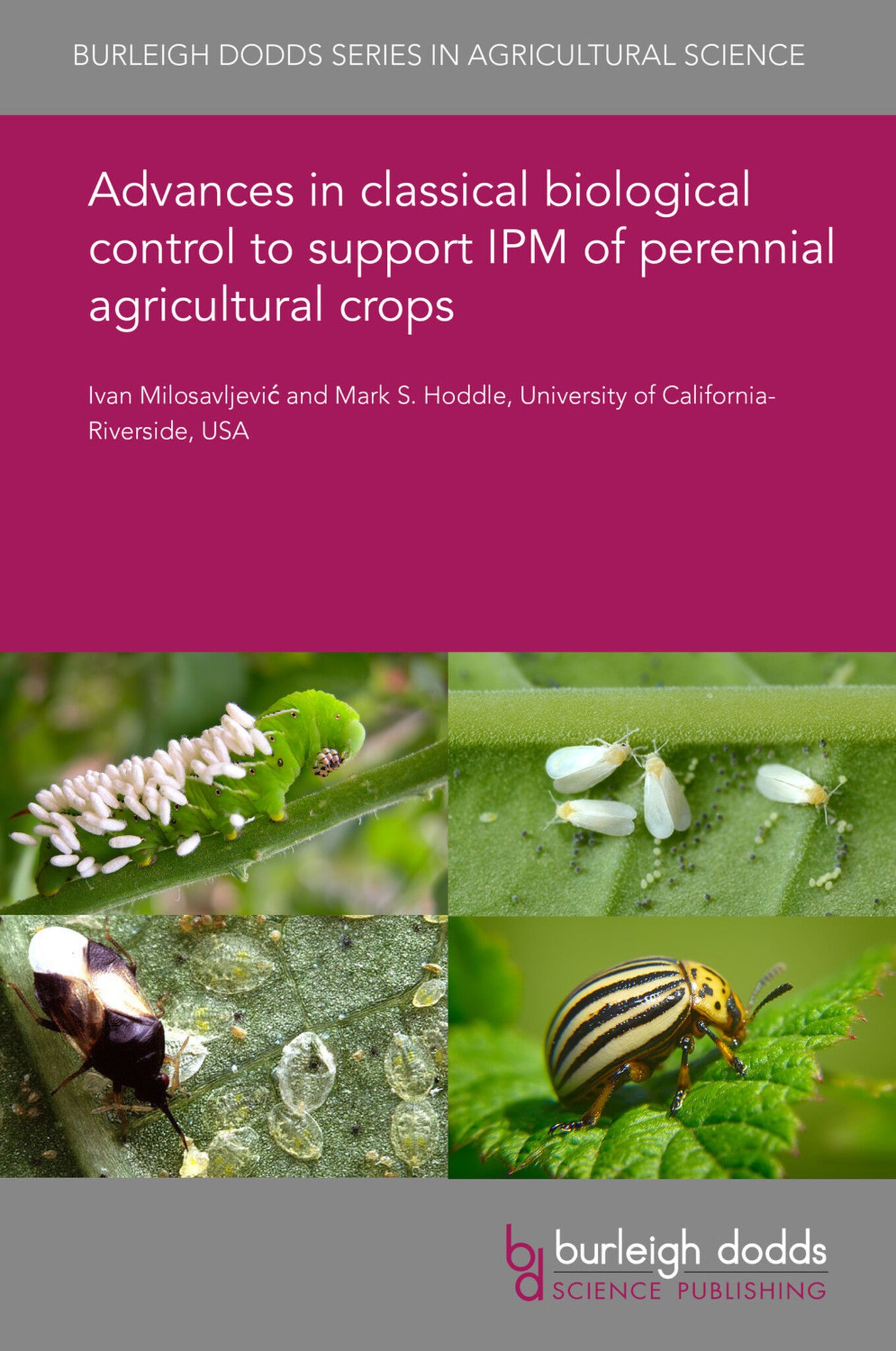We're sorry. An error has occurred
Please cancel or retry.
Advances in classical biological control to support IPM of perennial agricultural crops

Some error occured while loading the Quick View. Please close the Quick View and try reloading the page.
Couldn't load pickup availability
- Format:
-
28 October 2019


TECHNOLOGY & ENGINEERING / Pest Control, Pest control / plant diseases, SCIENCE / Life Sciences / Zoology / Entomology, TECHNOLOGY & ENGINEERING / Agriculture / Agronomy / Crop Science, TECHNOLOGY & ENGINEERING / Agriculture / Sustainable Agriculture, Insects (entomology), Sustainable agriculture, Agronomy and crop production

1 Introduction 2 Developing a classical biological control programme for managing invasive insect pests 3 Case study: classical biological control of Asian citrus psyllid in California 4 Benefits of classical biological control for IPM of insect pests in perennial crops 5 Future trends and conclusion 6 Where to look for further information 7 References



